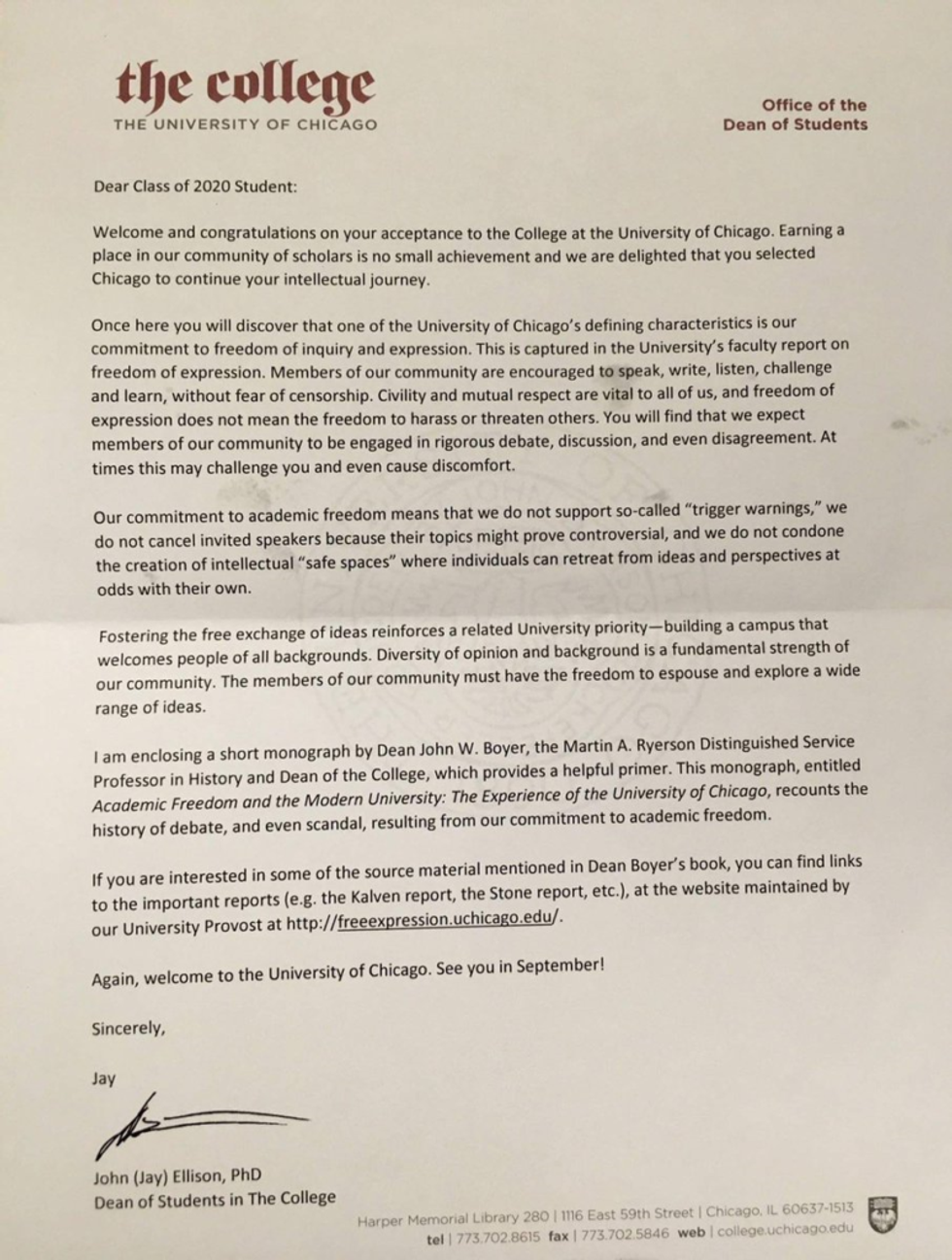Articles and comments in trigger warnings have been decorating my newsfeed for a while now. So it's probably past time for me to weigh in on the matter.
Many see them as ways to ignore the hard conversations. That they are treating people with kid gloves that are not present in the real world. This is ignorant. Stop. The purpose of a trigger warning is to allow someone to know that a topic is coming up. It does not serve to automatically excuse them from the conversation, but rather offer this person the opportunity to prepare to cope with the discussion rather than being blindsided. No one is trying to threaten freedom of speech, but without these people may not feel comfortable coming to class.The University of Chicago is just one example that displays the lack of understanding for the purpose of trigger warnings.
Why take away another choice from someone? Say a student had been raped, hasn't their choice already been taken away? Maybe they're not in a state where they can fully process the topic without slipping into a panic attack. Maybe they are ready to talk about it and use their experience to bring light to a topic, but want to figure out how to articulate it before the conversation happens.
Not going to lie, I definitely appreciate a trigger warning. I appreciate having time to prepare myself for conversations on child molestation because it brings up my own experiences. I'm not going to run away from the conversation, but I can go in and be in a good state of mind to handle it. I have better days than others. Some days I can't handle being blindsided by child sexual abuse. Some days the fear comes back and it's overwhelming. But if I know it's coming I have time to prepare. I have time to brace myself for images or stories. I have time to decide if I want to share mine. Students come from all walks of life, veterans who may be suffering from PTSD and suddenly with no warning, they're exposed to graphic images or something else that sets them off. Don't we have a responsibility to foster an open and respectful learning environment for all students? Have the tough conversations, but just prepare students for them, and make them aware of resources that the university has.
The fact is that no one knows anyone's life story. The traumas people are dealing with on a day to day basis are hidden beneath the surface. Putting a trigger warning, may in no way impact your life, but it could seriously help someone else. Trigger warnings are not out there to hurt anybody, merely to help people deal with difficult experiences in a difficult world. Why have a problem with that?






















